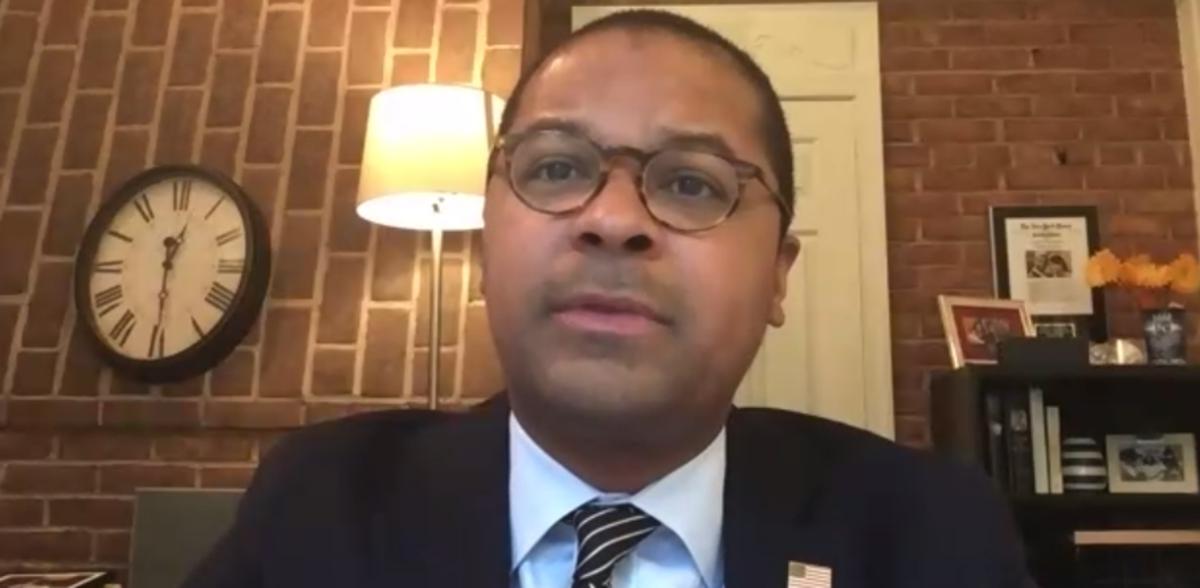Federal Communications Commissioner Geoffrey Starks Attacks Trump Administration Section 230 Petition
September 14, 2020 — Federal Communications Commissioner Geoffrey Starks on Wednesday blasted the Trump administration for its efforts to impose President Donald Trump’s political agenda upon an independent agency. Speaking during a webinar hosted by the Center for Democracy and Technology, Starks c
Jericho Casper

September 14, 2020 — Federal Communications Commissioner Geoffrey Starks on Wednesday blasted the Trump administration for its efforts to impose President Donald Trump’s political agenda upon an independent agency.
Speaking during a webinar hosted by the Center for Democracy and Technology, Starks called the administration May 28 executive order on social media an unprecedented effort “from the get-go.” He maintained that the FCC has no jurisdiction over social media services.
Starks also referenced the recent petition made by the Commerce Department’s National Telecommunications and Information Administration that officially urged the FCC to interpret Section 230 of the Communications Decency Act in a way detrimental to big tech platforms like Twitter and Facebook.
“The president is not the only one who wants the FCC to rewrite Section 230 statute,” said Starks.
Starks also said that it would be the decision of agency Chairman Ajit Pai as to whether, when and how to address the NTIA petition. Starks said that any movement on the matter will likely occur after the November election.
“There is a clear motive behind the NTIA petition,” said Starks, calling the petition a product of the president’s impatience, obsession with his online persona, and a political distraction.
Starks said that the motives behind the social media executive order or the NTIA petition were shown to be suspicious because of its timing.
“The executive order came immediately after President Trump had a Tweet flagged for saying mail-in ballots would lead to rigged elections,” said Starks, “it clearly shows the president’s intention to influence how social media sites operate to benefit himself.”
The NTIA’s request for the FCC rulemaking would have significant impacts on the use of the internet for free speech, he said.
The NTIA petition has already resulted in thousands of comments being filed to the Federal Communications Commission from hundreds of netizens and industry groups.
“Social media plays a crucial role in our elections,” Starks continued, noting that American’s report getting their news from Facebook more often than any other site.
Starks further called it deeply ironic that Republicans, the same Commissioners who moved to repeal net neutrality in 2017, relinquishing FCC control over the internet, are now calling for the FCC to moderate Section 230. “They are in an irreconcilable position,” said Starks, “they want it both ways.”
Starks argued the executive order was not an example of sound reasonable policymaking. He also urged his Republican colleagues to reject the NTIA petition as quickly as possible in order to get back to focusing on their top priorities.
“We don’t have to do what NTIA asks or what the executive order asks and I don’t think we should,” maintained Starks.









Member discussion